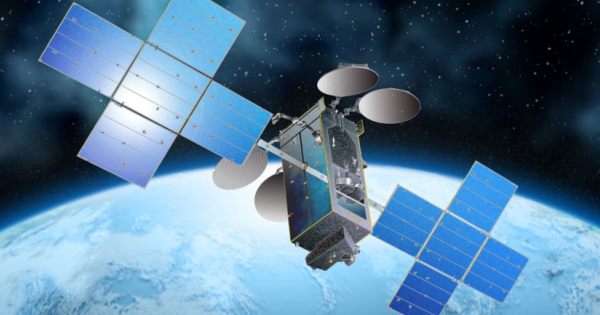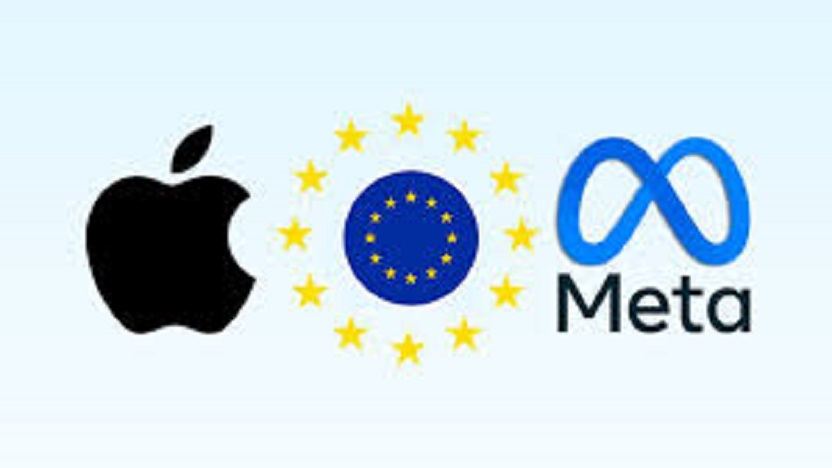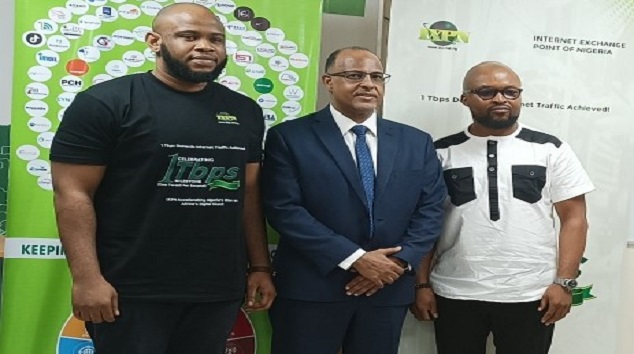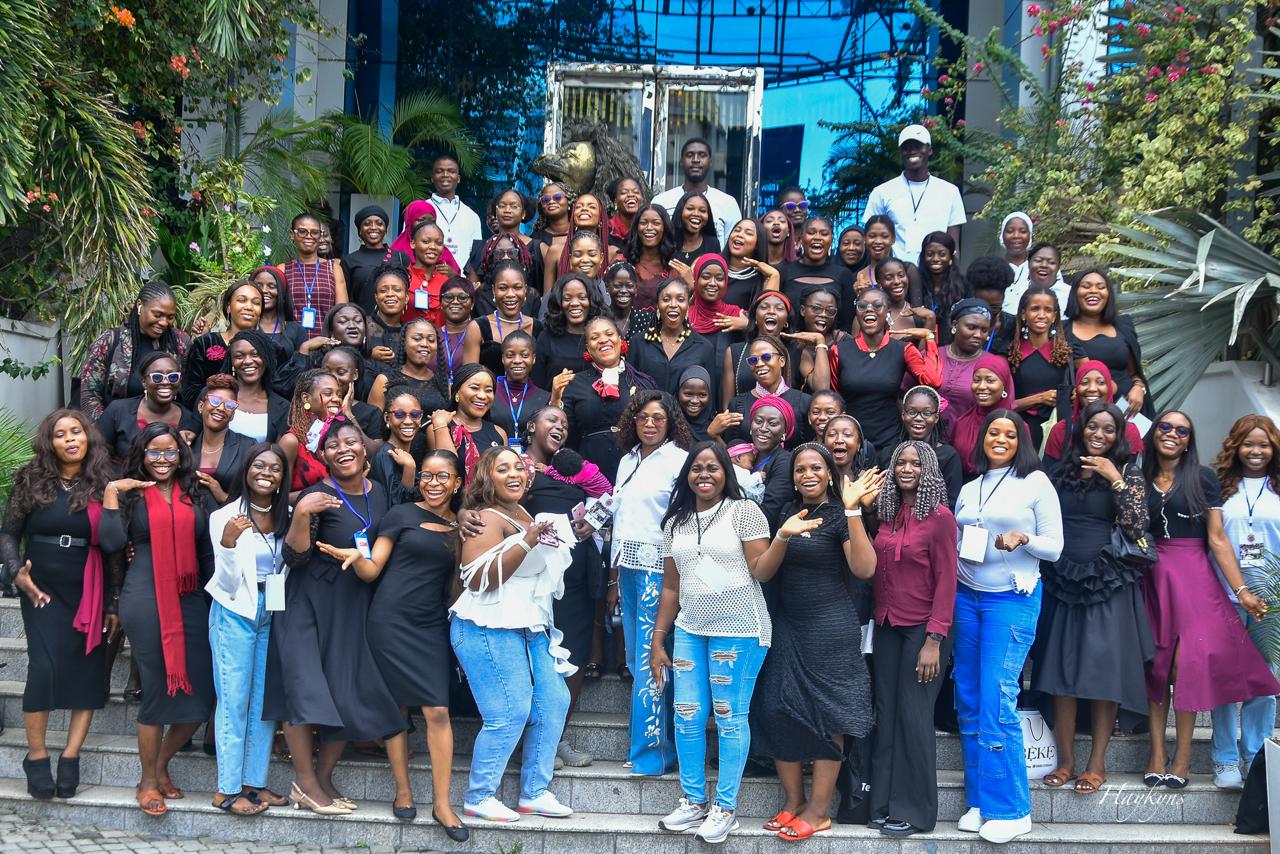Telecom
Disaster Recovery Technology: Satellite Communication for Moral, Welfare and Recreation

By Andrew Aroh
Moral, Welfare and Recreation [MWR] programs are a key part of Government and Emergency Response Operation. MWR networks are designed to support remotely deployed emergency response personnel, civilian employees, etc.

Satellite communication plays an important role in MWR programs. due to the fact that emergency response personnel may be deployed in areas suffering from manmade or natural disaster with no terrestrial connectivity.
The amount of data, voice and video exchanged in MWR networks. has grown substantially, along with the wide number of support service that are being offered.
Government and emergency response officials continuously seek new technologies to drive down bandwidth requirements and are working for ways to lower satellite bandwidth cost.
These objectives can be achieved through efficient satellite communication technology solution such as;
- Adaptive code modulation
- Cross-layer optimization
- Data casting
- Global Reach and Fast Deployment:
- Humanitarian missions into man-made or natural disaster areas, and peace keeping /relief operations take government and emergency response personnel to remote locations where often terrestrial communication infrastructure is unavailable, or has been destroyed.
- Scalable Multi-Service Hub:
- Through the Multi-Service Hub both large setup camps small sites and trucks can be connected with a common forward satellite carrier in order to establish access to MWR video, voice or data services[internet, intranet, TV broadcasting entertainment, telecom]
- The return technology can be SCPC or MF-TDMA [or a combination] depending on the return data, Size of the remote, Configuration of the network [point-to-point, point-to-multipoint]
- The Multi-Service hub provides reliable 2-way IP connectivity through a versatile and scalable hub as well as cost-effective and low power consumption remote terminals.
- The network contains management functions for:
Monitoring and control, SLA Management, QoS, Fair user policy.
- Double Throughput is some Bandwidth:
- Both the amount of voice, data and video traffic and the number of MWR networks over satellite have increased substantially.
- The boost in rates needs to be balanced with the lack of satellite capacity over some areas of operation.
- Dedicated technologies are being used in a large number of MWR networks to achieve maximum throughput independent of the selected satellite.
At the same time important OPEX reductions can be accomplished.
The used technologies include: Adaptive code modulation, Bandwidth cancellation, Clean channel technology, Equalink.
- Optimal Service Availability over variable conditions;
- Even in the most hatsh and hostile conditions it is important to have MWR networks over satellite available for crew and emergency response personnel at all times.
- However, Fading conditions could seriously disturbed the satellite transmission and lead to temporary link losses.
- Fading conditions could be due to different circumstances;
The choice of satellite [inclined orbit, ku,-ka-and x-band]
Environmental [tain, dust]
Interference [between two adjacent satellites]
- Therefore with the auto-adaptive technology these fading conditions will no longer interrupt the transmission between the hub and remote sites nor result in the loss of data.
- Moreover, service priorities [e.g, voice, data, video] and Quality-of service policies can be auto-adapted on-the-fly depending on the bandwidth availability through Cross-Layer Optimization technology.
- Support of Voice Data and Video
- Moral Welfare and Recreation services are a combination of:
- Voice [calling the home front]
- Data [social media, email, browsing]
- Video [news, sports, entertainment, TV and broadcast, training movies]
- Most of these streaming and file-transfer based services have converged towards IP.
- Through a multi-service platform the different MWR services over IP can be combined either in the hub or the remote into a single carrier for efficient over satellite at optimal service availability.
- For the broadband experience over satellite moderns and terminals the MWR network implement the most efficient technologies:
- Adaptive Code Modulation in the forward link
- Adaptive return technologies
- Embedded IP traffic enhancement
Software [aka Cross-Layer-Optimization]:
- Shaping
- TCP acceleration
- Pre-fetching
- Compression
- Next to an improved end-user experience, considetable cost gains can be achieved:
- Reduction of Webpage word. Time up to 60%
- Reduction of file Download up to 90%
- Up to 35% Bandwidth Reduction
- Reliable and Efficient Data Casting:
- Multicasting MWR content towards remote sites and total areas with Data casting software will immediately result in important efficiency and OPEX gains.
- The transmission towards remotes are aggregated in a common efficient DVB-S2 ACM forward over satellite.
- The content is stored on the server located at the remote.
- The reliability of the data casting [digital cinema, news, shows, etc.] is enhanced by the software’s partial retransmission capabilities.
Only the detected missing fragments are retransmitted which provides important OPEX gains for services on- the-move or those suffering from fading or interference conditions.
- Data casting software also has the following possibilities:
- Dynamic scheduling & prioritization
- Authentication, Authorization & Accounting
- Automated content Distribution via ‘’hot folders’’
- Monitoring & Control.
Andrew Aroh is President of SSPI Nigeria
Telecom
EU Fines Apple and Meta €700m in Landmark Digital Markets Act Enforcement

European Commission has imposed landmark fines on tech giants Apple and Meta in the first enforcement actions under the Digital Markets Act (DMA), a new regulatory framework designed to enhance consumer choice and ensure fair competition in the digital economy.

Apple was fined €500 million (£428.3 million) for restricting app developers from guiding users to alternative purchasing options outside its App Store, a practice the commission said limited access to more affordable offers and stifled competition.
The commission has ordered Apple to amend its App Store policies by late June to comply with the DMA, warning that failure to do so could result in further daily penalties.
Meta, the parent company of Facebook and Instagram, was fined €200 million (£171.3 million) over its ‘pay or consent’ model, which required European Union users to either pay for an ad-free experience or consent to personalised advertising.
The commission found that this model failed to offer users a genuine choice and violated rules governing data processing and user consent. Meta’s revisions to this model, made in November 2024, are currently under review by the EU.
Both companies have pushed back against the commission’s decisions. Apple announced plans to appeal, stating that the ruling was unjust and detrimental to user privacy and security. “Today’s announcements are yet another example of the European Commission unfairly targeting Apple in a series of decisions that are bad for the privacy and security of our users, bad for products, and force us to give away our technology for free,” the company said.
Meta also criticised the EU’s approach, claiming that it imposes undue burdens on successful American companies while allowing competitors from China and Europe to operate under different standards. Joel Kaplan, Meta’s chief global affairs officer, said, “This isn’t just about a fine; the Commission forcing us to change our business model effectively imposes a multi-billion-dollar tariff on Meta while requiring us to offer an inferior service.”
The fines are part of a broader effort by the EU to clamp down on dominant digital platforms, known as ‘gatekeepers’, and ensure they do not abuse their market positions.
The commission has also concluded an investigation into Apple’s compliance with DMA rules on browsers and default apps, acknowledging changes that have opened up more space for competition.
However, Apple remains under scrutiny for its handling of alternative app marketplaces, which could attract additional penalties.
The enforcement measures may further strain transatlantic relations, with some in the United States, including former President Donald Trump’s administration, criticising the EU’s digital regulations as disproportionately targeting American firms.
Despite the pushback, the European Commission insists that the DMA is enforced impartially to safeguard consumer rights and foster a level playing field in the digital market.
Telecom
Nigeria Hits 1 Terabit Internet Traffic Milestone

IXPN, Nigeria’s leading Internet Exchange Point, is proud to announce a landmark achievement: crossing 1 Terabit per second (1Tbps) in aggregate peak domestic internet traffic for the first time.

This milestone signifies a major leap forward in developing Nigeria’s internet infrastructure and underscores the critical role of local internet infrastructure in driving economic growth, innovation, and connectivity for millions of Nigerians.
“This milestone is more than just a number. It’s a symbol of Nigeria’s digital maturity and our united strides towards becoming a tech-driven nation. By keeping local internet traffic within Nigeria, we reduce costs, improve speeds, and ensure our digital economy thrives with homegrown infrastructure.” said Muhammed Rudman the CEO of IXPN.
“Achieving 1 Tbps is a significant victory for Nigeria’s ICT ecosystem, a breakthrough for domestic internet traffic. It serves as a catalyst, enabling millions of Nigerians to enjoy faster, more affordable, and resilient internet connectivity.”

1 Terabit per second is a game-changer for Africa’s most populous country. To put it in perspective:
- Mega Video Calls: A speed of 1 Tbps can support over 1 million concurrent Zoom calls, allowing students, entrepreneurs, and professionals to connect and drive Nigeria’s digital revolution.
- Streaming Frenzy: With 1 Tbps, more than 200,000 people can stream HD Nollywood films or movies on Netflix simultaneously without any buffering or interruptions.
- Data Superpower: This speed enables the transfer of the entire contents of 50,000 smartphones—including photos, apps, and videos—in just one second.
For Nigeria, hitting this milestone means reducing reliance on international bandwidth, decreasing latency for local services, and strengthening our position as Africa’s digital heartbeat. This milestone is a testament to the power of collaboration, innovation, and the relentless pursuit of a faster, more connected Nigeria.
This accomplishment goes beyond technical advancements; it has significant economic implications. By encouraging local traffic exchange, IXPN reduces dependency on international bandwidth, leading to:
- Significant Cost Savings: By utilizing local data exchange, Nigerian businesses can save millions of dollars annually on international bandwidth fees.
- Enhanced Speed and Connectivity: With reduced latency, users experience smoother streaming, gaming, and real-time services, enhancing their overall online experience.
- Increased Resilience: Strengthening Nigeria’s internet infrastructure protects against global disruptions, ensuring consistent access to vital services such as healthcare and education.
- Improved Efficiency: Optimizes digital services like fintech, edtech, e-commerce, and e-health, propelling innovation and growth in these sectors.
Surveys conducted among IXPN members over the years have shown a growing percentage of local internet traffic in Nigeria. A recent report indicates that some connected members can localize or domesticate up to 70% of their internet traffic through IXPN.
“As more content providers, ISPs, banks, and public institutions localize their traffic through the IXP, end users benefit directly,” added Raphael Iloka (Marketing Manager). “We’re not just routing data — we’re building the foundation for Nigeria’s digital economy.”
The 1 Tbps peak highlights the remarkable impact of collaboration among all stakeholders. This milestone is a significant achievement not only for IXPN, but for the entire ICT ecosystem. IXPN deeply appreciates the vital contributions of all stakeholders involved.
To our Members and Partners: Your trust and participation have been essential to our growth. Together, we have established a hub where networks can interconnect, innovate, and thrive.
To the Government and Regulators: We express our sincere appreciation to the Nigerian Communications Commission (NCC) for all its support over the years and its vision of a digitally inclusive Nigeria.
To our Team: We extend our gratitude to our engineers, network administrators, and all other staff who work tirelessly behind the scenes to push boundaries.
To the Global Community: We are grateful to partner organizations like the Internet Society (ISOC). Your support and advocacy in domestic peering empower us all.
Reaching 1 Tbps is just the beginning. As data demands skyrocket with AI, IoT, 5G, and immersive technologies, IXPN is committed to staying ahead of the curve. Here’s how:
- Scaling Infrastructure: We are investing in advanced hardware and software to support multi-terabit capacities.
- Enhancing Resilience: We are strengthening our network to ensure uptime, security, and adaptability in an ever-changing digital landscape.
- Empowering Underserved Communities: We aim to expand our reach to rural areas, bridging the digital divide, and supporting agritech, edtech, and telehealth.
- Strengthening Africa’s Digital Sovereignty: Partnering with regional IXPs to keep Africa’s data on the continent.
Telecom
TD Africa’s TecHERdemy Empowers 400 Women to Lead in Tech

On April 17, 2025, the atmosphere at Yudala Heights was electric with pride, hope, and inspiration as TD Africa, the leading tech distribution company in Sub-Saharan Africa, celebrated the graduation of 400 young Nigerian women from its flagship TecHERdemy program.

Over the past six months, these incredible women immersed themselves in rigorous, hands-on training in Cybersecurity, Data Science, Artificial Intelligence, and Software Development. They are now confidently stepping into the tech world, ready to make their mark.
The event brought together top voices in the industry, including Dr. Leo Stan Ekeh, Chairman of the Zinox Group, who commended the graduates for their resilience and brilliance. In his keynote speech, he shared a hopeful vision for Africa’s future, calling these young women “the pioneers of a new, inclusive era of tech leadership on the continent.”
Mrs. Chioma Ekeh, CEO of TD Africa, also delivered a heartfelt message, urging the graduates to let their values guide them as they navigate their careers.
“Hold tightly to your values. Let integrity guide your work, let innovation fuel your dreams, and let your impact speak louder than your résumé,” she encouraged.
The ceremony was filled with emotion as graduates shared their personal stories of transformation. One of them, Yetunde Kayode, now a certified data scientist, summed it up beautifully: “This program changed my life. I’m walking away empowered, skilled, and deeply grateful to Mrs. Ekeh and the TecHERdemy team for believing in us.”
Fifteen exceptional participants were also honoured for their outstanding performance and leadership during the program, reminding everyone that excellence comes in many forms.
TecHERdemy, which launched in November 2024, was built with a simple but powerful mission: to equip young Nigerian women with globally relevant digital skills and open doors to a tech career. But what happened over those six months went beyond just skills; it sparked a movement.
This graduation wasn’t just the end of a program. It was the beginning of a brighter, more inclusive future for tech in Africa.

 Telecom2 days ago
Telecom2 days agoDigital Transformation Remains Africa’s Gateway to Economic Advancement – Adumike

 Telecom2 days ago
Telecom2 days agoPAFON 2.0: Experts Discuss Pathways to Boost Financial Inclusion in Nigeria

 General News2 days ago
General News2 days agoEFCC Clarifies SCUML Certificate Misuse amid CBEX Ponzi Scheme Scandal

 Telecom1 day ago
Telecom1 day agoMTN Nigeria Faces Class Action Lawsuit over Alleged Data Mismanagement

 E-Financial2 days ago
E-Financial2 days agoCBN, NGX Group Defend Economic Reforms at Nasdaq

 E-Financial1 day ago
E-Financial1 day agoFCMB Capital Markets Leads ₦11.85bn GLNG Bond for LNG Plant Expansion

 General News1 day ago
General News1 day agoFG to Introduce New Tax Credit Scheme to Replace Pioneer Status Incentive

 Telecom1 day ago
Telecom1 day agoNigeria Hits 1 Terabit Internet Traffic Milestone

























